Text

If you like anti-heroes, or even villains, to the point that you argue online or at parties that they're "Correct, actually, and you should rewatch the film or reread the book with that in mind," there's something you need to hear and to carefully consider:
Sometimes people lie.
Spoilers for Fight Club.
I know that seems like a given, and probably so obvious that it doesn't need to be mentioned. But it does need to be mentioned, and apparently constantly pointed out, because I still see some laughably dangerous takes about popular films that gain shocking levels of validation. So without further adieu, let's talk about how
Tyler Durden is a Liar.
Not always, but sometimes, and often enough that we can't really ever take his word at face value.
Like so many things in life, "being a liar" isn't a binary. But with trust, like with personal safety, if you've seen a pattern of occasionally being dishonest or dangerous, you should assume they always are until they've been proven factual or safe.
Check out the above linked Tweet thread and you'll see someone paraphrasing the motivations of Fight Club's antagonist, as literally spoken by the character himself. Yes: Tyler Durden wants Jack (Ed Norton's unnamed character is called "Jack" in the credits) to leave his consumerist life and lead a cult of obedient followers. Is it because he wants to help his fellow man embrace a life free of consumerism?
NO! It's because he's a product of Jack's untreated mental illness. And without the illness, Tyler ceases to exist.
Most of Tyler's advice is to help Jack reach "rock bottom". Many 12-step programs teach that you need to hit "rock bottom", or the lowest place in your life, before you can "clear out enough junk for the good to have a chance." In other words:

But this isn't helpful psychiatric advice. Clinical psychiatrists argue that "rock bottom" is a form of "resource loss", which leads to further psychological stress, not less.
Tyler never states it, but he hates mental healthcare. He's manipulating people into sacrificing their lives for a cult and using all the charismatic propaganda of every cult leader who's ever bought a rural townhouse and bulk white robes.
Yes, we see Jack get plenty of therapeutic emotional output during the first act. And yes, that emotional output is what leads to Tyler. But that's all it is: emotional output. It's crying while pretending to be something he's not, which turns into crying while getting his eye knocked out of its socket. It's not asking help from a licensed medical professional.
Even the male doctor he sees, who Jack hopes will prescribe him medication, recommends herbal remedies instead of seeking psychological help.

Tyler needs Jack to stay mentally ill to survive. Looking through that lens, all of his rhetoric makes a lot more sense. Yes, some of it sounds like good advice, and some of it genuinely is.
But we can't look at pieces of Tyler Durden and decide who he is; we have to take him in totality. And when some of his rhetoric leads to cohorts getting their scalp blown apart, or giant buildings collapsing and potentially killing people (Yeah, he says the buildings were "all our people" and evacuated, but again: why trust him?) then we have to question the other things he says, too.
#fight club#tyler durden#rock bottom#consumerism#pop culture#mini essay#essay#villains#anti hero#mental illness#mental health
7 notes
·
View notes
Note

What's your favorite film about fathers and sons?
Since so much of your content is about masculinity and how we learn about it, I wanted to see if you had any thoughts or examples from pop culture that explored that relationship. (And obviously, it doesn't need to have a "father" or a "son", but somehow connected to cultural ideas of masculinity.)
For me, I've always loved grifting stories, so Catch Me If You Can is an all-time fave. I love watching Frank Abagnale Jr as a mindful student of his world up until the moments when he needs to perform inside of it.
And ultimately, having to "perform" masculinity is an overwhelming prospect. It's so stressful and exhausting that, eventually, Frank realizes it's not even worth financial security or prestige.
When we meet Frank's dad, he's telling a story at the rotary club about "two little mice" falling into a bucket of cream, frantically flailing for life until they churn it into butter.
Later, while pretending to be a doctor with a law degree, Frank tells that same story to his prospective in-laws. It moves them so much, they don't hesitate to give permission to marry their daughter. It also creates the image of an impossibly hard-working man that Frank will have to spend the rest of his married life trying to prove.
It's not until we see Frank catching up with his dad at a diner that we see how much this has been tearing him apart. After learning his father has fallen into a secure, yet boring, mail job and is no longer pursuing his ex-wife, Frank begs his dad to "Tell me to stop". The performance is causing him too much stress and, ultimately, isn't worth the financial and familial security of maintaining the grift.
On the other side, we have Carl Hanratty, an FBI agent who couldn't care less about performing for others. When in a car with two other agents, Hanratty doesn't laugh at one of the other agents' lewd stories. Annoyed, he asks why Hanratty never laughs, so Hanratty asks if they want to hear a joke. When they say, "Yeah," he sets up a "knock knock" joke only to reply, "Go fuck yourselves." He's not interested in performing for other people, even the masculine tradition of telling off-color jokes.

By the end of the movie, Frank has a closer relationship to Hanratty than his own father, and the main reason is that Hanratty wants Frank to be himself. Sure, that means letting himself be arrested and confessing to his crimes. But it also means letting himself be vulnerable: to let himself be arrested instead of shot down, to share his secret about passing the Louisiana Bar exam, and to help others instead of just himself. It's such a strong motivation that Hanratty lets Frank get on a plane, breaking his parole, and says he trusts him to come back to work.
So yeah, watching his father perform masculinity left such a strong impression he let it absorb his entire life to the point that he became an internationally wanted criminal.
(FYI I don't know how Tumblr works; i just started using it and don't know if this will show up on my feed, like a post, or will be direct messaged, so this is me trying to learn this system as much as anything else; thank you for your time.)
I absolutely love this question, and your example, as well. This is something I've thought a fair amount about (I actually have a video on fatherhood in media planned for the future!), and I have a whole handful of answers, but I'm going to go with the first one that jumped to mind:
How to Train Your Dragon is definitely up there for me. I really appreciate the way it tackles patriarchy in a sort of... non-judgmental light while highlighting the problems with it, if that makes sense? It's not framed as "Clearly this traditional, combative Viking (masculine) way is bad and terrible and destructive and shameful", but rather based around fear of the unknown and the drive to protect one's own. For that reason, it's understandably glorified, even in its violence, because that violence is seen as serving an essential purpose.
Hiccup and Stoick's relationship is so fascinating to me, because it's clear there's love between them, but the fact that they have nothing in common means the relationship begins and ends at familial, there's no friendship or connection beyond that. You don't get the sense that Stoick is disgusted by Hiccup's poor masculine performance so much as worried about his ability to stay safe and fit in. I'm not going to go so far as to say he's not embarrassed by his son's eccentricity, even Hiccup calls it out that his dad wanted a son who's all power and glory, but Stoick never says that himself, he more just laments Hiccup being different. Stoick's own words point more at apprehensiveness where his son's safety and social future is concerned, as well as frustration about how to raise him. He talks about his own boyhood, his father telling him to bang his head against a rock and doing so without question, the way he was taught that being a Viking (man) means power, ruthlessness, and following orders--how he embodied that as a boy... and Hiccup doesn't. For me, this reads less as him being ashamed of his son and more as him simply not knowing what to do because the blueprints he was given are useless. We even find out he's tried typical father-son bonding activities, but Hiccup's nature always means they deviate from the plan and he's left at a loss again.
That Stoick feels this way is really driven home when he finds out that Hiccup is a natural born "dragon slayer", his love for his son is so obvious here when he says "We finally have something to talk about," and is downright giddy over the opportunity to connect with him. But that promptly falls back into their usual distance and awkwardness, because the problem of Hiccup pretending to be someone he's not hasn't been solved; he's just gotten more skilled at lying.
When Hiccup eventually does try to show his dad his truth, Stoick isn't ready for it. Eccentric deviation from the norm is one thing, but he's gone so far off course that it poses a much larger threat, welcoming in the Dangerous Other they've been at war with. Because of this, Hiccup isn't just confronting his dad with his own truth, he's confronting his dad with the fact that he, Stoick, was misled. That his entire worldview of what it is to be a Viking (MAN) is based on fear and misunderstandings rather than an accurate assessment of the world.
So he does what that misinformed framework taught him to do in the face of opposition. He lashes out, doubles down, and refuses to communicate and engage with the fact that maybe he's just wrong. He fights. Again, this comes from that protective impulse, but we begin to see where it becomes internally destructive in addition to its external destruction; it's been paired with the fear of fallibility and a threat to the status quo.
What a love so much about Stoick realizing his mistake is that before anything else, this rock-headbutting, skull-crushing pinnacle of manhood apologizes. He apologizes and he verbally acknowledges his son's autonomy. After the grand finale, he recognizes that it's his son's differences that not only make him wonderful, but were the key to solving an ongoing problem of violence and suffering.
"Turns out all we needed was a little more of this."
"You just gestured to all of me."
The call back on that one is just *chef's kiss*
The Old Way was one of defensiveness and mistrust, and The New one of empathy and understanding. I love the way this message is given, and the way it highlights how guidance in growth is a gift children can give to their parents, as well, when given the space to do so.
11 notes
·
View notes
Text
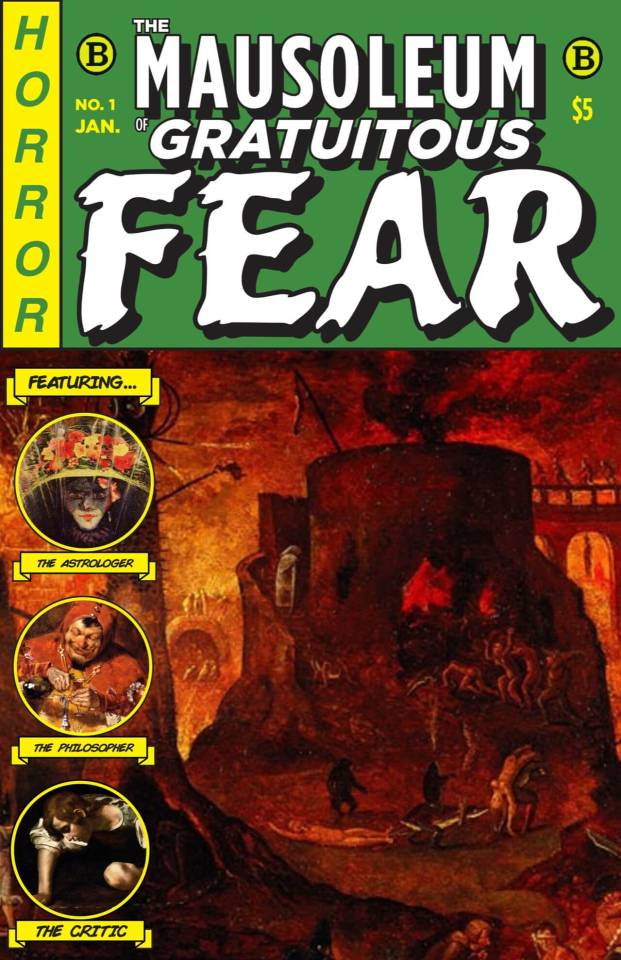
Still one of my favorite creations. I forgot it's all available, free, online because the only link is in my hand-made XML sitemap.
I kind of wish I had an InDesign license again to do silly stuff like this:



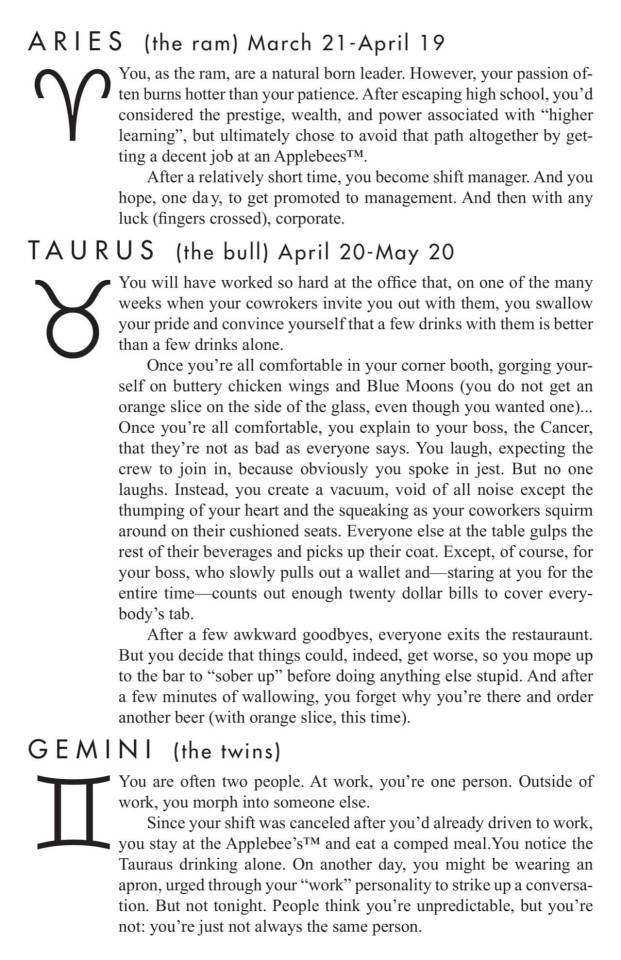



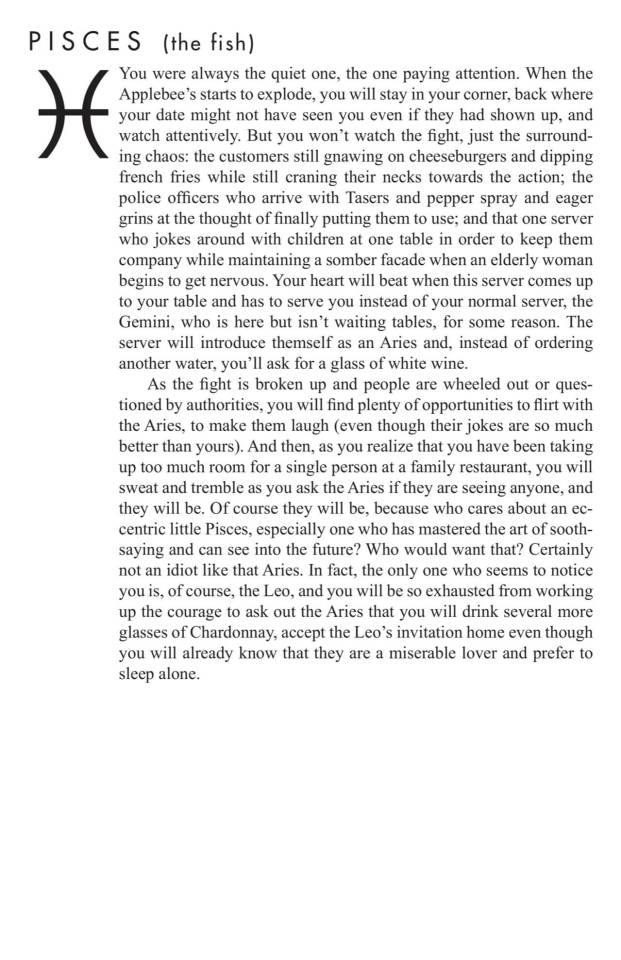
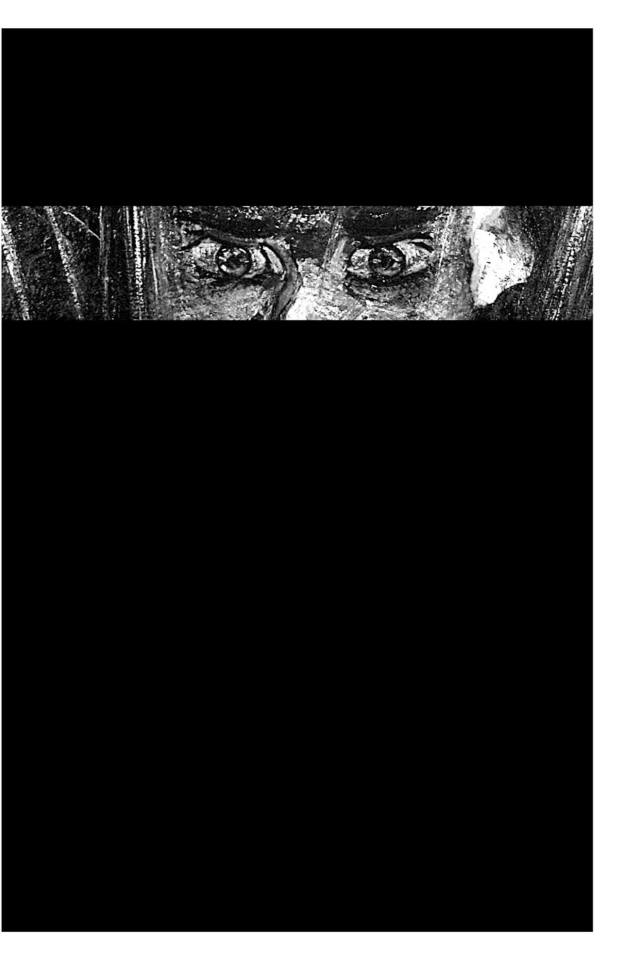
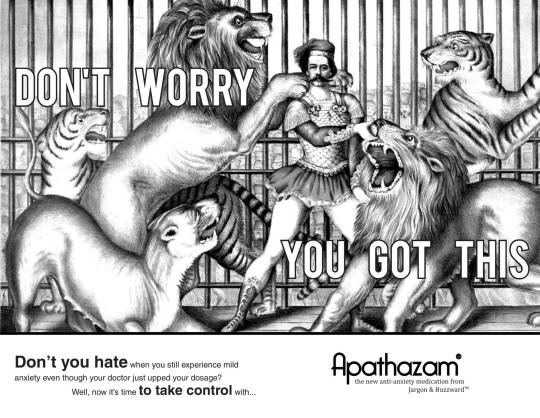

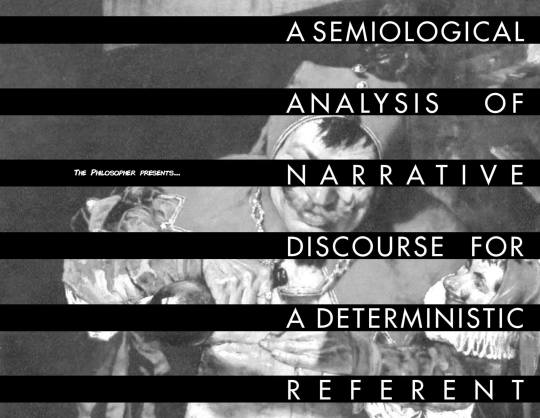

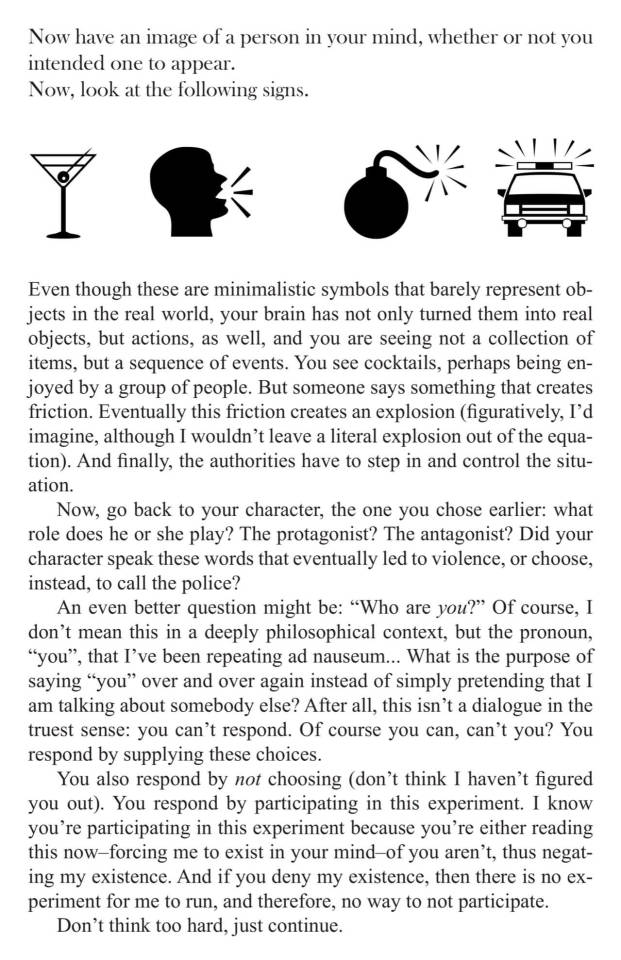
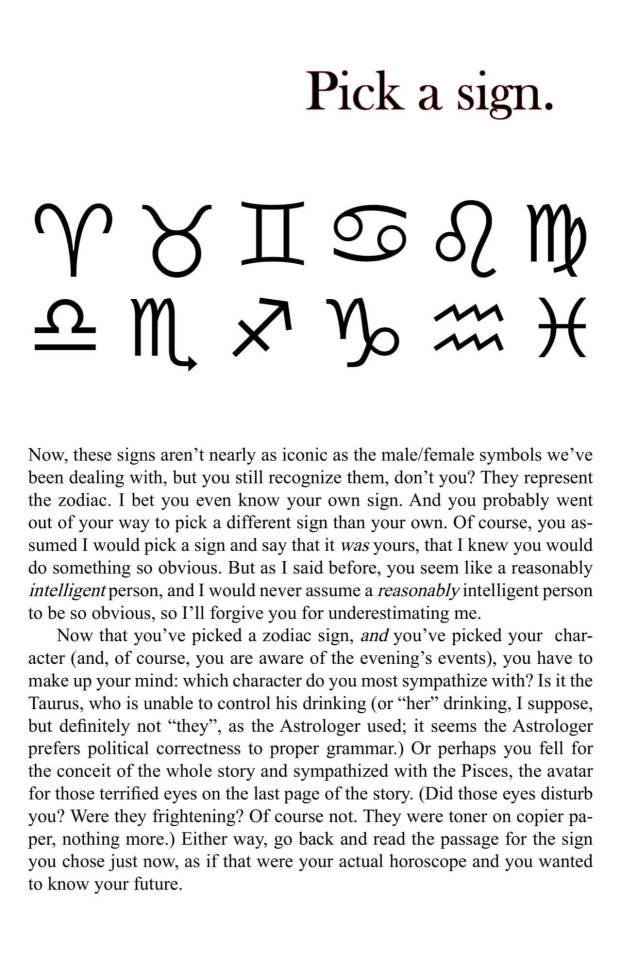
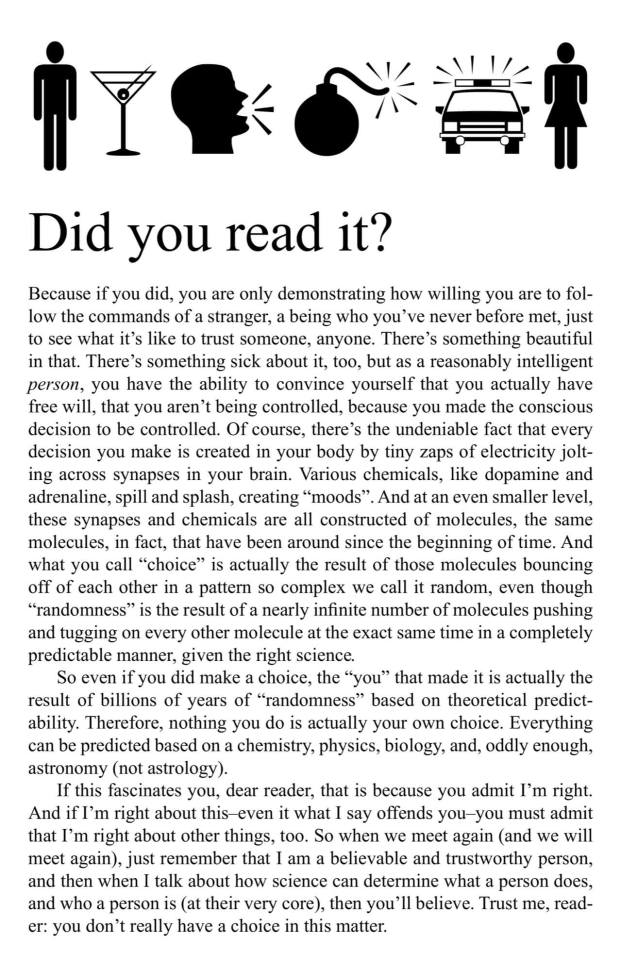

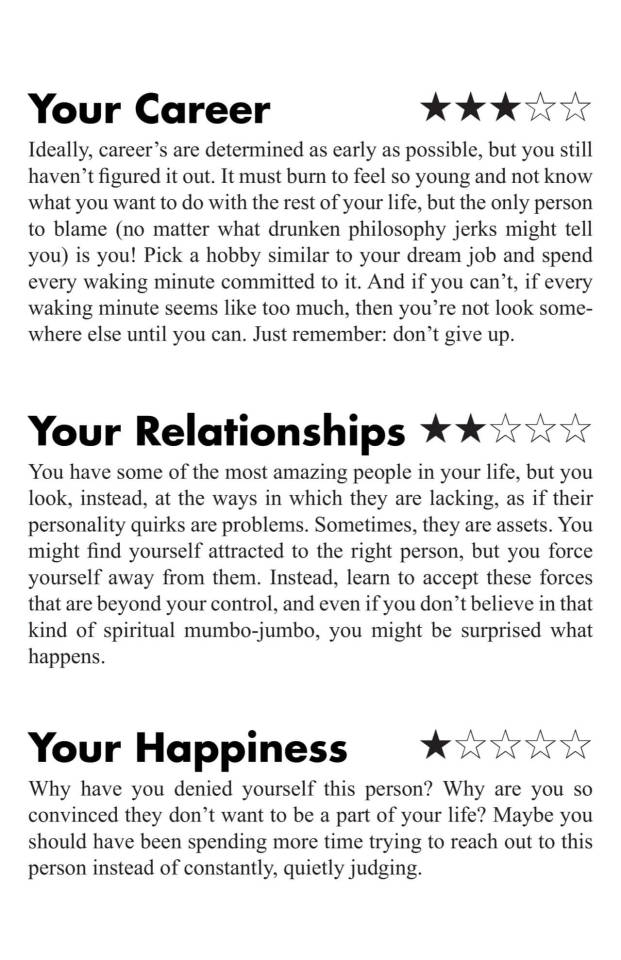
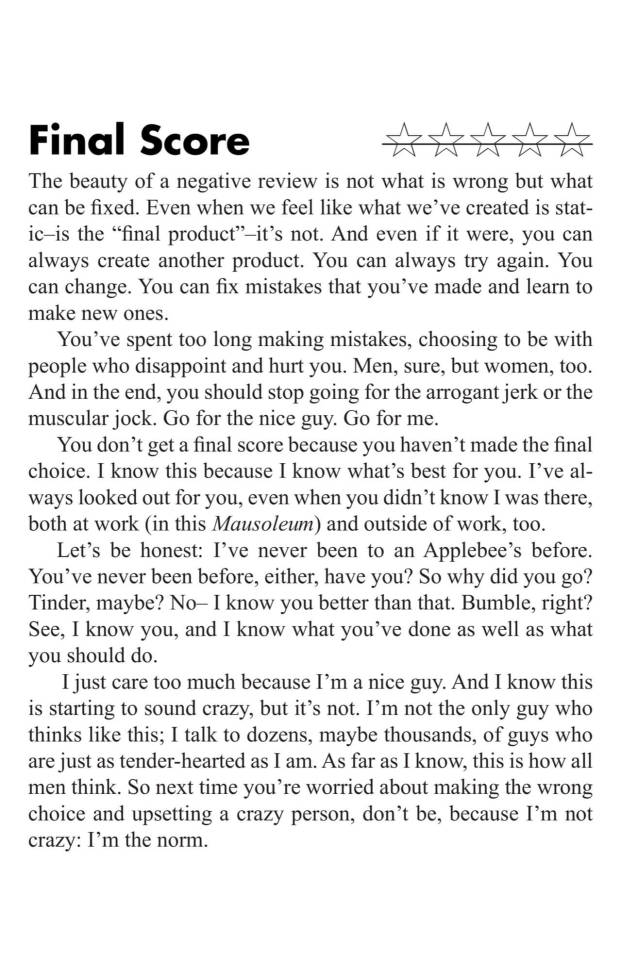


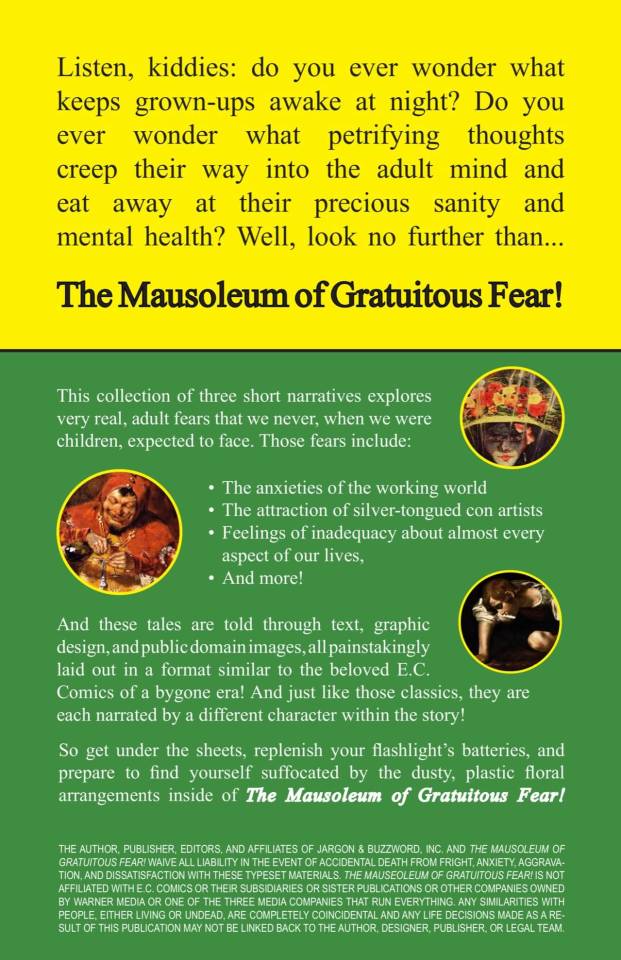
#fiction#experimental fiction#ec comics#public domain art#horoscope#toxic masculinity#nice guy#snob#satire#homage#comic book#zine#zines
2 notes
·
View notes
Text

Tumblr Start
Starting a tumblr account. We'll see how this goes.
0 notes
Text
April 12th, 2013 (A Friday!)
Wrote for an hour and a half at writing practice. After that, did stuff for something, I think.
:-|
0 notes
Text
Wednesday, Thursday: Aprils 10th, 11th
Can't remember/didn't do anything
>:O
0 notes
Text
April 8, 2013: Work Log Update
Can't remember. I need to post these on time >:[
0 notes
Text
April 7th, 2013's Work Log
I totally spent an hour and a half editing/writing a short story for a reviewer!
Spent two hours on a blog post for Disposable Tea.
0 notes
Text
April 2nd, 2013
Wrote blog article for an hour and a half.
Read a lot more. That still counts, right?
:|
0 notes
Text
03/31/13: Work Log Update
Worked on blog article for an hour, mostly editing.
0 notes
Text
March 28, 29, 30: Work Log of Sadness
Maybe edited for an hour or two. Otherwise, unproductive
:(
0 notes
Text
Work Log: March 27th, 2013
Wrote/edited fantasy story for ~3 hours.
0 notes